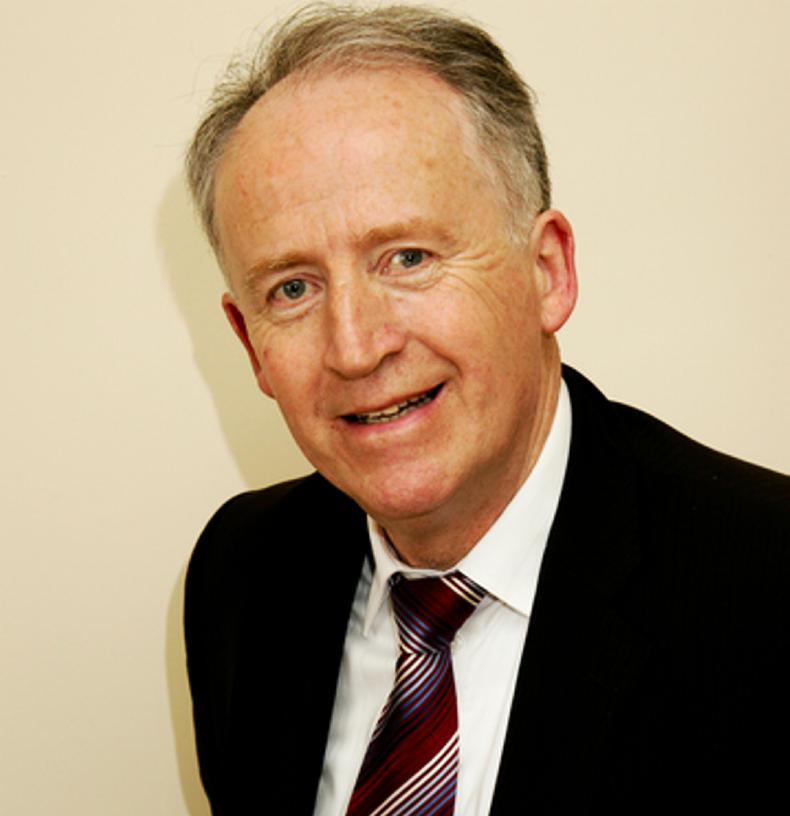When Brendan Heneghan, who hails from Kilmaine in Co Mayo, completed the Leaving Cert in 1968, he started working as a baker with Western Pride Bakery: “It was a local job and there were virtually no jobs whatsoever – there was no careers guidance at that stage,” says Brendan
After two or three years in the bakery, Brendan says he got a wake-up call and applied for a scholarship to Mountbellew Agricultural College. He was successful and spent a year there in 1971.
“When I went there, I heard fairly early that every year there were one or two scholarships to University College Dublin for people that would do very well in every year,” says Brendan. So he put his head down, got that scholarship to UCD to study agriculture and found his way into the ag world.
After his degree, Brendan did a masters in 1977 in animal nutrition, under the direction of Dr Pat Caffrey at UCD Lyons Estate in Kildare, which he describes as a “terrific year”.
Brendan’s first job was as a sales rep with a company supplying veterinary surgeons. He drove around the country in a brand new car and stayed in the best hotels. The only problem was he “hated the sight of it”.
“It wasn’t for me at all. Doing a job that isn’t you. I didn’t like it, I didn’t enjoy it, I didn’t look forward to the next day or the next week, so then I saw an ad for a job as a temporary agricultural adviser with Teagasc in Wicklow, did the interview and got it. It ticked all the boxes, it ticked all my careers drivers. I just loved what I did.”
Brendan worked as an adviser for 14 years in Wicklow, Clare and Galway.
“If you’re in a job that you’re just flourishing in, you do better, you enjoy what you’re doing.”
The biggest thing is confidence. If you’re confident coming in you’ll do very well
A career highlight was next on the agenda for Brendan, and it was something that didn’t do his CV any harm either. Together with a colleague, John O’Dwyer, he won the Agricultural Achievement Award in the mid-80s for developing cattle housing. He describes this as a “huge achievement at that stage”, and it got him noticed. So when a manager job came up in the late ’80s, he was successful in his application and became Chief Agricultural Officer in Roscommon. He was in this role for four years and then moved back to Galway in 1995 and spent 20 years as a chief officer there, as well as becoming regional manager in Galway and Clare for the last five years.
This brought Brendan up to retirement – and to his next wake-up call. He did a lot of reflection about what he was going to do after retirement and decided he would like to stay working with people.
Brendan felt this was the right path for him, because his years working in management meant he had a lot of experience in developing, empowering and supporting people in becoming the best they can be.
Brendan did an executive coaching diploma at the Irish Management Institute in 2013 and he now runs a business which focuses on career coaching, career guidance, interview preparation and preparing people for what they want to do after retiring – “that’s called third act coaching”. He says he also does a bit of general farm business coaching, strategic planning, succession and inheritance coaching, labour management coaching and executive coaching (for managers to improve what they’re doing).
Brendan also does some project management. He was also project manager for the Farming and Country Life 1916 event in Athenry last year, which was widely heralded as an epic success.
Brendan is placing a particular emphasis on career coaching at the moment. He prepares people for job interviews and says he gets a lot of people from the agri sphere. He has sat on many interview panels himself over the years and as a result shares two particular nuggets of wisdom:
“The biggest thing is confidence. If you’re confident coming in you’ll do very well. If you’re not a confident person by disposition, then the only way of getting confidence is by preparing well – so you prepare for every eventuality. When any of us aren’t confident, we begin to give jargon and we begin to sound artificial.
“The second thing is the need to finish fairly powerfully. When you get to the situation where the interview is coming to an end and you’re asked if you’ve any questions or anything further to add, the successful candidate that is well prepared will always have a fairly powerful finish. They will thank the interview board, obviously, but also summarise their strengths in a very natural way and they’ll have maybe a power question to ask at the very end that will be pretty insightful and will get the board sitting up and wondering.”
On a final note, Brendan says: “If you’re in something that you really like and that is really you, then you’ll flourish and you’ll get on well in it and you’ll be happy in it and you’ll radiate positivity. If you’re not in that, it’ll be the opposite.”
Brendan Heneghan, M.Agr.Sc, Dip. in execurive coaching (IMI), is a career and interview coach based in Galway. For more visit www.brendan heneghancoaching.com






 This is a subscriber-only article
This is a subscriber-only article






SHARING OPTIONS: